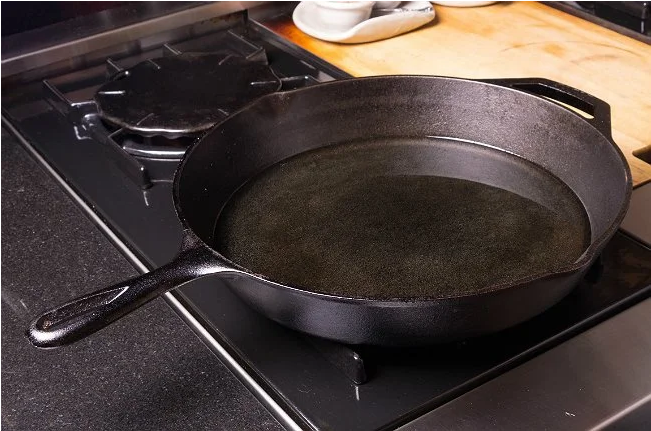Unlock the simple secrets to ensure your cast iron cookware remains in tip-top condition. Don’t hesitate any longer – dust off that old skillet and let’s get cooking!
Using well-seasoned cast iron cookware is a culinary joy that can last a lifetime. In addition to being nontoxic, nonstick, durable, and long-lasting, cast iron offers culinary benefits like even heating and flavor enhancement. The only thing deterring some from embracing this versatile kitchen essential is the uncertainty surrounding its care and cleaning. Fear not, for we’ve broken down the maintenance process into a series of crucial dos and don’ts to ensure your cast iron cookware provides you with years, if not generations, of reliable service.
DO: Season your new cast iron cookware before its first use.
Even if your new pan claims to be nonstick or preseasoned, it’s wise to season it before use. Seasoning involves baking oil into the pan at a high temperature, creating a protective, nonstick layer that seals the cast iron. As the Lodge Cast Iron website aptly puts it, “The more you cook, the better it gets.”
To season your cookware, preheat your oven to 325 degrees Fahrenheit. While the oven warms up, wash and thoroughly dry the skillet. Using a paper towel, apply a thin coating of vegetable oil to both the inside and outside of the skillet. Avoid excessive oil, as it can make the pan sticky. Place the skillet upside down in the oven on the middle rack and position a sheet of aluminum foil on the bottom rack to catch any drips. Bake for one hour, then turn off the oven and allow the skillet to cool completely before removing it.
DON’T: Put your cast iron cookware in the dishwasher.
Dishwashers and harsh detergents will break down the seasoning, erasing the nonstick properties and flavor-enhancing capabilities of your cast iron cookware.
DO: Clean your skillet promptly after cooking.
If you’re the type to leave dishes to soak overnight, cast iron cookware may not be your ideal choice. Rinse your pan while it’s still warm, but not scalding, as soon as you finish cooking. If you encounter stubborn, cooked-on food, consider using a credit card instead of a store-bought scraper to gently remove residue. A mixture of sea salt, a touch of vegetable oil, and a plastic scouring pad or poly dish scrubber can effectively scrub away remaining residue. Rinse the pan with water and dry it immediately.
The Lodge website also recommends applying a light coat of vegetable oil after every wash and setting the seasoning by placing the cookware over a low-heat burner for three to four minutes.
DON’T: Allow your cast iron cookware to remain wet.
Remember that cast iron is still iron, and prolonged exposure to water leads to rust. Reserve tasks involving water, like boiling, for other cookware. After washing, dry your cast iron cookware immediately to prevent rust and maintain its nonstick surface.
DO: Reseason your pan if it becomes sticky, loses its nonstick properties, or appears gray.
Cast iron cookware requires occasional reseasoning, and recognizing the signs is straightforward. To reseason your pan, scrub it thoroughly with a small amount of dish soap and a plastic scrub brush. Dry it completely and then season it as you did before its first use. While soap is not recommended as a regular cleaner due to its potential to strip the seasoned nonstick coating, it can be used just before reseasoning.
DON’T: Discard your pan if it develops rust.
Remove any rust with a metal scouring pad or fine steel wool, then wash the pan thoroughly using water, a soft brush, and a small amount of soap if necessary. Rinse and dry the pan immediately, and proceed to reseason it as if it were your first time using it.
With proper care, cast iron cookware can endure for over a century. If you haven’t already fallen in love with your cast iron cookware, fear not the challenges of seasoning and cleaning. Rest assured, a bit of scrubbing and reseasoning can usually breathe new life into your cast iron cookware, offering a second chance for cooks who are still getting acquainted with this kitchen treasure. The versatility and resilience of cast iron provide both incredible cooking opportunities and numerous chances to perfect your culinary creations – two compelling reasons to give your old cast iron cookware another go.
image source : fo to search










